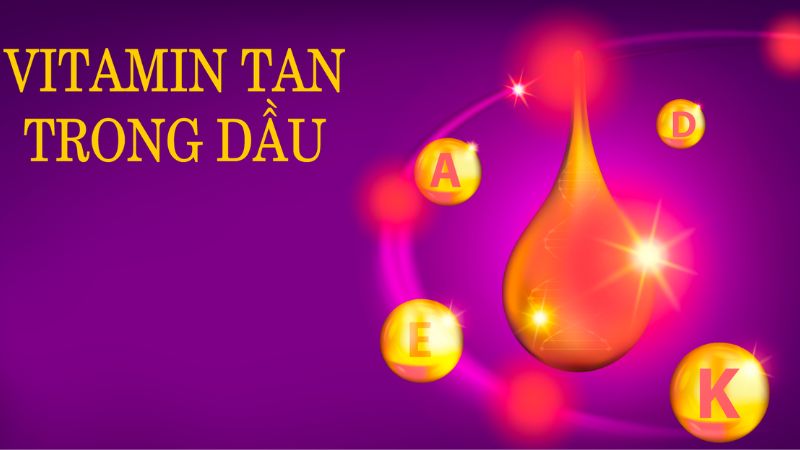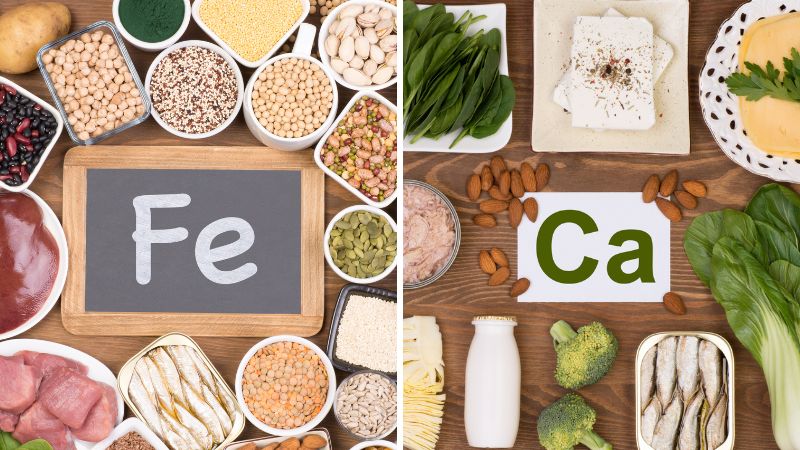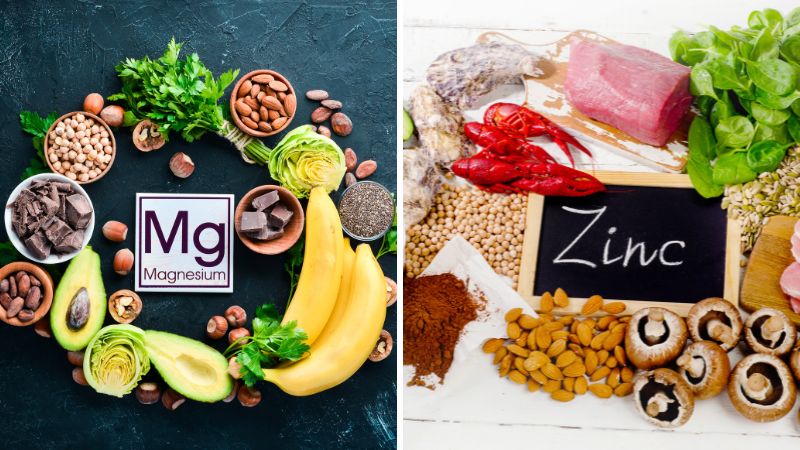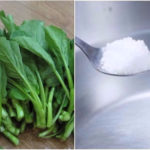Vitamins and minerals are essential for everyone’s health, ensuring a healthy body. Nowadays, it is not uncommon to supplement vitamins and minerals through oral intake. However, there are many types of vitamins and minerals that can be harmful when taken together. Therefore, you need to be aware of the vitamins and minerals that are incompatible and should be avoided using together!
1 Vitamin A, vitamin D, vitamin E, and vitamin K
Vitamin A, vitamin D, vitamin E, and vitamin K are fat-soluble vitamins. When these vitamins are supplemented together, they have a high risk of forming deposits and toxic substances in the body.
In addition, these vitamins have contrasting effects. While vitamin K has blood clotting effects, vitamin E helps to facilitate blood circulation. Therefore, combining vitamin E and vitamin K will not yield the desired results.
To ensure the best outcome, you should supplement these vitamins separated by a time interval of 1-2 hours.
 Vitamin A, vitamin D, vitamin E, and vitamin K
Vitamin A, vitamin D, vitamin E, and vitamin K
2 Vitamin C and vitamin B12
You should not consume these two vitamins simultaneously, as they have the ability to decompose and reduce absorption in the intestines. Therefore, you should take these two vitamins separated by approximately 2 hours to ensure their effectiveness.
 Vitamin C and vitamin B12
Vitamin C and vitamin B12
3 Calcium and iron
According to many recommendations, calcium and iron should not be supplemented simultaneously. This is because calcium can inhibit the absorption ability of the body, leading to a significant decrease in iron absorption and causing iron deficiency anemia. To achieve the best outcome, you should supplement calcium before or after taking iron with a time interval of 1-2 hours.
 Calcium and iron
Calcium and iron
4 Fat-soluble vitamins and water-soluble vitamins
Vitamins such as vitamin A, vitamin D, vitamin E, vitamin K should not be combined with vitamins such as vitamin C.
The reason is that the absorption methods of these two types of vitamins are different. While water-soluble vitamins should be taken before meals to be effective, fat-soluble vitamins are best supplemented during meals.
 Fat-soluble vitamins and water-soluble vitamins
Fat-soluble vitamins and water-soluble vitamins
5 Magnesium and multivitamins, calcium, zinc
The composition is believed to interfere with the absorption of minerals in the. Therefore, these two should not be taken together.
In addition, magnesium is also recommended not to be taken with calcium as it can form insoluble substances.
 Magnesium and multivitamins, calcium, zinc
Magnesium and multivitamins, calcium, zinc
6 Zinc and copper
Zinc plays a role in enhancing the immune system of the human body. However, zinc can interfere with the absorption of . This can cause anemia, osteoporosis, and increased susceptibility to infections.
 Zinc and copper
Zinc and copper
7 Omega-3 and ginkgo biloba
Omega-3 and ginkgo biloba in and are beneficial for brain health. However, they should not be taken together as both of them have blood-thinning effects. Taking them together can cause uncontrolled bleeding, especially when there is a wound.
 Omega-3 and ginkgo biloba
Omega-3 and ginkgo biloba
8 Iron and green tea
When drinking , you should not consume iron, as green tea contains epigallocatechin gallate or which can inhibit the absorption of iron. This can result in iron deficiency anemia.
It is best to take iron and green tea with a 2-hour interval to avoid health risks.
 Iron and green tea
Iron and green tea
Above are the information about vitamins and minerals that should not be taken together. To ensure safety, you should consult a doctor before taking them!
Source: Health and Life newspaper






































